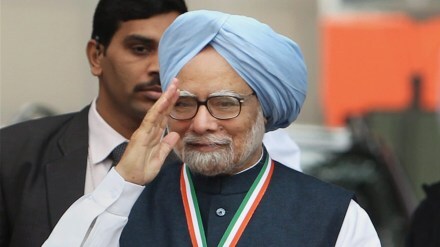Dr. Manmohan Singh, former Prime Minister and economist who transformed India’s economic landscape, passed away at the age of 92 on December 26 at the All India Institute of Medical Sciences in New Delhi. His death marks the end of an era for India, as Singh was both the architect of the nation’s economic reforms and a steadfast politician who navigated turbulent waters with dignity and grace.
Born on September 26, 1932, in Gah, a village in the Punjab province of undivided India (now Pakistan), Singh’s journey from a small village to the corridors of global financial power is nothing short of extraordinary. The man who famously spoke of studying under the dim light of kerosene lamps in his village without electricity went on to become a storied academic. After completing his education at Cambridge and Oxford, Singh became a renowned economist, serving in various capacities in the Indian government and international institutions, including as the Governor of the Reserve Bank of India and the Chief Economic Advisor.
In 1991, when India was teetering on the brink of economic collapse, Singh was appointed Finance Minister by then-Prime Minister PV Narasimha Rao. In January 1991, India struggled to finance its essential imports, especially of oil and fertilisers, and to repay official debt. In July 1991, the RBI pledged 46.91 tonnes of gold with the Bank of England and the Bank of Japan to raise $400 million.
Facing a severe balance of payments crisis and dwindling foreign reserves, Singh spearheaded a series of groundbreaking reforms that opened India’s economy to the world. His efforts to liberalise, privatise, and deregulate the economy led to a new era of growth and global integration.
The country’s new industrial policy, which abolished industrial licensing and encouraged foreign investment, remains a cornerstone of modern India’s economic success.
The 1991 Budget, along with his other landmark initiatives, fundamentally reshaped India’s economic framework, laying the foundation for its rise as one of the world’s fastest-growing economies.
However, Singh’s role in India’s political history is equally significant.
In 2004, he was chosen as the Prime Minister, a position he held for 10 years, despite his reluctance to enter politics. His leadership was marked by a quiet yet firm resolve. His tenure saw path-breaking initiatives like the Right to Information (RTI) Act, Right to Education (RTE), and the Mahatma Gandhi National Rural Employment Guarantee Act (MNREGA), which made significant strides in social welfare.
Although his government faced serious allegations of corruption, including the 2G spectrum scam, Singh maintained a dignified silence. “I honestly hope history would be kinder to me than the contemporary media,” he said famously in 2014, in one of his last media interactions.
Singh’s most defining trait was his humility. He was often referred to as a “reluctant politician,” having never contested a Lok Sabha election, and was even mocked as “Maunmohan Singh” (the silent Manmohan Singh) by critics. Despite this, he remained steadfast in his principles, often defending his government’s actions even in the face of intense opposition.
In his second term, Singh confronted difficult challenges, from the global financial crisis to internal dissent within his coalition. But he remained resolute, once stating, “The greatness of democracy is that we are all birds of passage. We are here today, gone tomorrow, but in the brief time that the people of India entrust us with this responsibility, it is our duty to be honest and sincere in the discharge of these responsibilities.”
Manmohan Singh’s legacy is one of profound transformation. A man of intellect, integrity, and patience, he reshaped India’s economic destiny and left an indelible mark on its political fabric.
